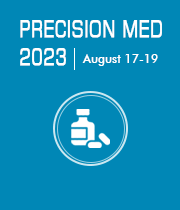Title: Overview of appendix cancer PMP (ACPMP) Research foundation & epithelial appendiceal malignant neoplasms: A rare but challenging cancer with critical unmet medical need
Abstract:
Appendiceal cancer is a rare cancer for which there is critical unmet medical need. Although it is a rare cancer, findings from a 2020 study reflect that the overall incidence of malignant appendiceal tumors has significantly increased in the U.S. and Canada from 2000 to 2016. Singh H, Koomson AS, Decker KM, Park J. Demers AA. Continued increasing incidence of malignant aopendiceal tumors in Canada and the United States a population based study. Cancer 2020;126(10):2206-2216. One of the challenges of diagnosing appendiceal cancer is that it often presents with nonspecific symptoms and is often mistaken for colon cancer. By the time a proper diagnosis of appendiceal cancer is made, the disease is advanced. It has spread throughout the abdomen and, depending on histology, presents as pseudomyxoma peritonei (for low grade tumors) or peritoneal carcinomatosis (for high grade tumors). This is deemed Stage 4. For years, and continuing today, cytoreductive surgery and intraperitoneal heated chemotherapy with mitomycin C or another perfusion agent remains the standard of care. This procedure, known as CRS/HIPEC, however, is not an option for many patients due to a high-grade histology, tumor burden, or unresectable tumor due to location (e.g., small bowel). For these patients, quality of life is poor and the disease is fatal. In terms of non-surgical options, patients are typically offered systemic chemotherapy (5FU-based) that are typically used to treat colorectal cancer. However, as shown by a team at MD Anderson in a recently published paper, this approach is not effective, particularly in the case of low grade appendiceal histologies. Shen JP, Yourself A, Zeneddine F et al. Efficacy of Systemic Chemotherapy in Patients with Low-grade Mucinous Appendiceal Carcinoma: A randomized crossover trial. JAMA June 2023. (Dr. Shen is a guest presenter for ACPMP’s free June webinar on June 22 and will be discussing this study in greater detail.) The ACPMP Research Foundation is a small, all-volunteer led 501(c)3 foundation whose mission is to fund educational programs to increase awareness among clinicians researchers, patients/families about appendix cancer and to fund research to discover innovative treatments for appendiceal cancer with the hope of one day finding a cure. This presentation will provide a brief overview of appendiceal cancer with a focus on the current challenges, limited treatments options, and critical need for innovative therapies. It will also include an overview of the ACPMP Research Foundation and its research grant program and some of the more recent research funded, including this year a study to explore a vaccine for a specific mutation often seen in appendiceal cancer that, to date has not been targetable.
Audience Take Away Notes:
- Increase awareness of the rare cancer of appendiceal cancer and the critical need for targeted therapies
- Identify ACPMP funding opportunities for tinterested researchers
- Foster ongoing thinking and collaborations about how to leverage the promise of precision medicine for the purposes of earlier diagnosis, more efficacious treatments, and/or more reliable surveillance


